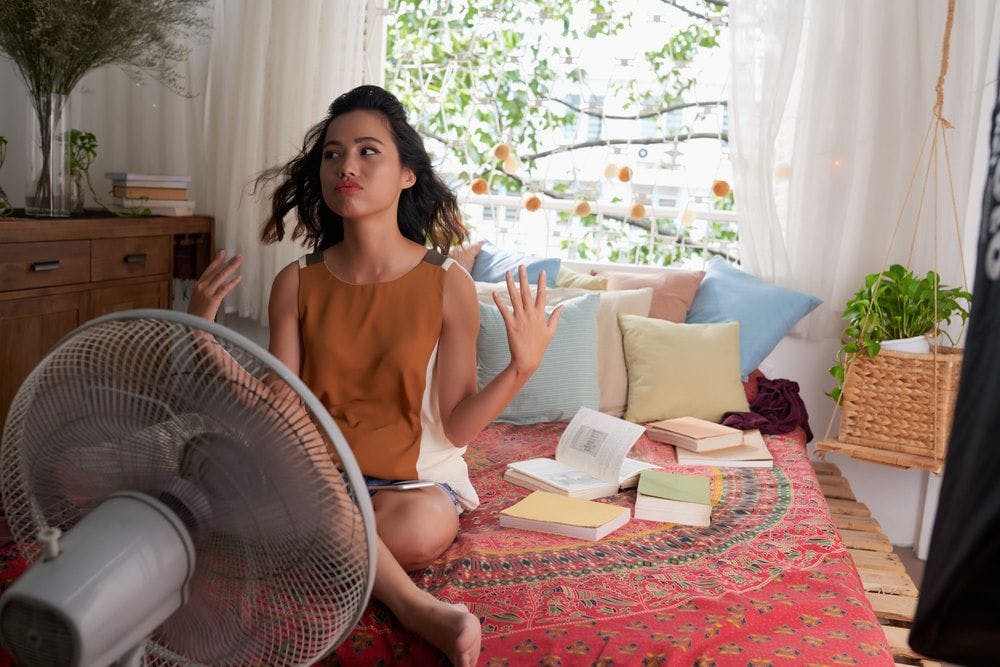
As the UK is braced for hot weather, it’s important to care of yourself, and be aware of signs that you may be at risk
It’s what we longed for in the depths of winter when we couldn’t feel our toes, and would go days without seeing the sun. But the sunny weather doesn’t come without its challenges. Here, we break down some essential self-care tips for taking care of your mental and physical health when the temperature skyrockets.
Take a breather
When you’re feeling hot and bothered, it’s easy to get wound up. Whether you’re at work or with friends, remember that it’s OK to take a few moments for yourself. Try going on a short, shady walk – or have a lie-down and some quiet time.
Take note of your mood. You may be feeling more frustrated and irritable than usual – and that’s understandable. If you’re feeling particularly pent-up, try this quick breathing exercise to re-centre yourself: breathe in for the count of four, hold for two, breathe out for the count of four. Repeat until you feel balanced.
Try to get a good night’s sleep
We know, it’s easier said than done. But sleep is such a vital ingredient for good mental health that it’s important to keep trying to get those hours in. Create a good airflow in your home by opening your bedroom door and windows throughout the house, and having a lukewarm bath or shower before you get into bed can help keep your core temperature down.
If you find yourself getting restless or flustered, nip it in the bud by getting up, grabbing yourself a glass of water, re-making your bed, and getting back in. This will help you re-set your mind, ready for take-two.

Know your limits
The key here is to listen to your body. If you are feeling fatigued, it’s a sign that you may want to wind things down. It’s OK to say no to things that you think will be too much, or overwhelming.
When the heat sky-rockets, many travel companies advise against travelling unless it’s absolutely necessary – particularly by rail where the temperature inside the carriages can quickly become unbearable. If you can, plan not to travel too far, and instead opt for a relaxing day at home – you could use it as an opportunity to get stuck into some reading, or catch up with friends.
Make sure you’re getting enough fluid
This one may seem obvious, but how much fluid is enough? In normal weather, it’s recommended that we drink 1.2 – 1.5 litres of water. But when the temperature starts to rise it’s important to replace the water that we’re losing, so you’ll want to amp up your intake.
Make sure to take regular sips of water throughout the day – even before you begin to feel thirsty – and if you’re going out, plan to take a bottle of water with you so that you don’t get caught short-handed.
Know the signs of heat exhaustion and heatstroke
Heat exhaustion is not serious, but can become so if it develops into heatstroke. Signs you may be experiencing heat exhaustion include:
- Headache
- Dizziness
- Feeling sick
- Pale, clammy skin
- Cramps
- Fast pulse
- Feeling very thirsty
If you suspect you may be experiencing heat exhaustion, it’s important to cool down within 30 minutes, move to a cool place, lie down with your feet raised slightly, keep on drinking water, and cool the skin with cold water on a flannel. If symptoms continue, you may be developing heatstroke.
If you do not feel better within 30 minues, or your symptoms get worse, call 999.

